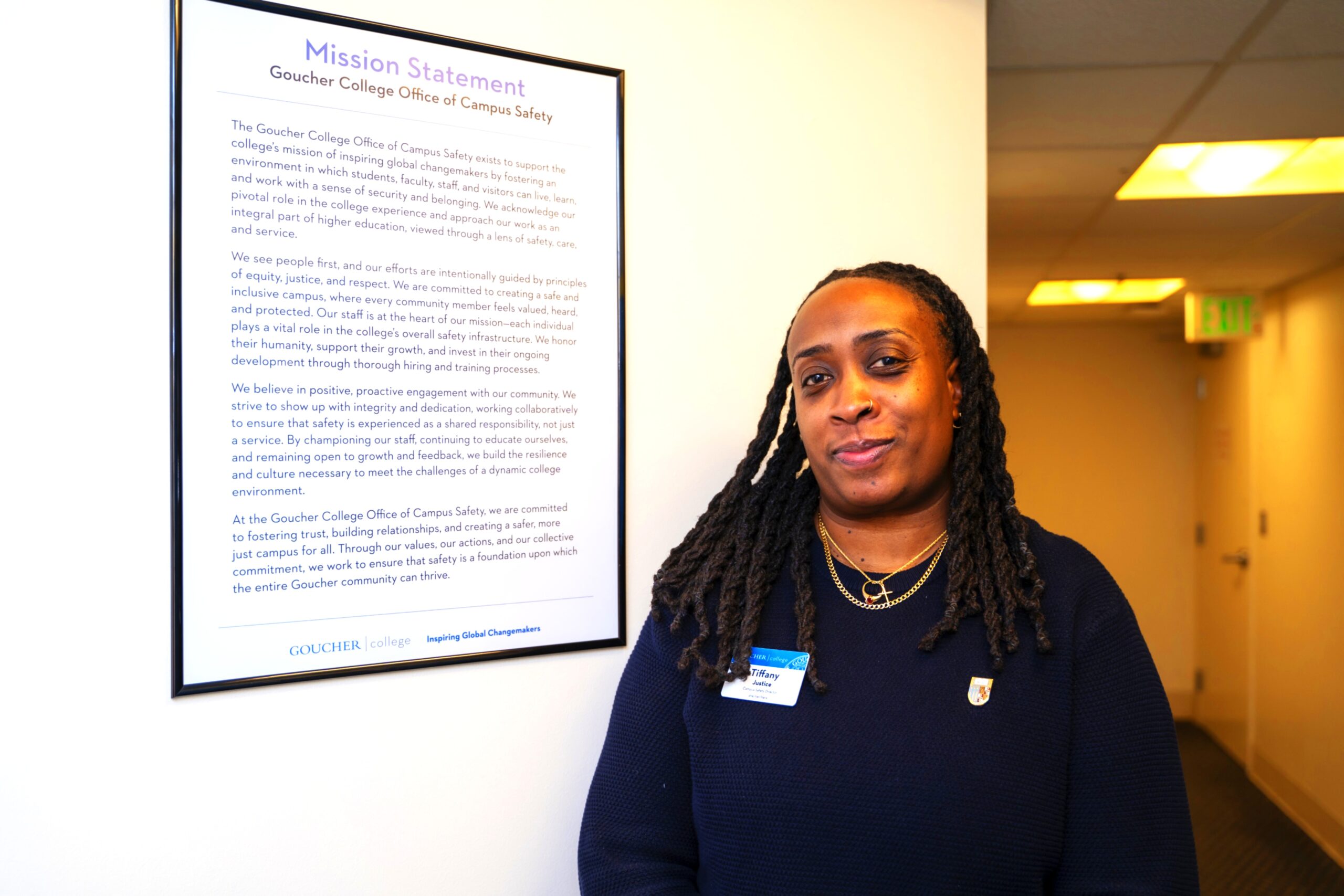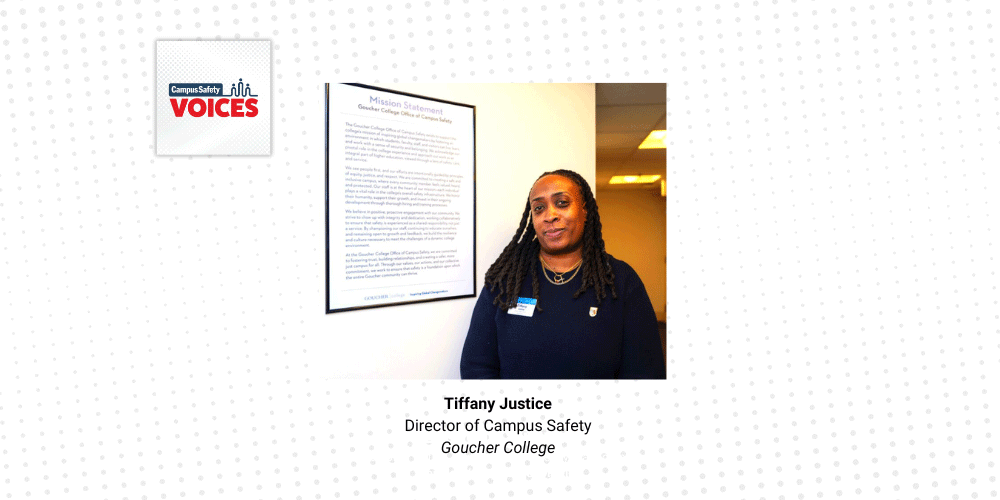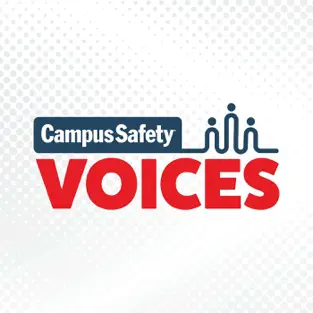Amy Rock (00:00): Everyone, and thank you for joining us for another episode of the Campus Safety Voices podcast. My name is Amy Rock. I'm campus safety's executive editor, and joining me today is Tiffany Justice, director of Campus Safety at Goucher College in Maryland. And Tiffany is a finalist for this year's Campus Safety Director of the Year awards program, which honors executives in hospital, university, and school security, law enforcement and or emergency management. And today, Tiffany is going to talk with us about two of many significant initiatives she has spearheaded in her role. And one of your key accomplishments was rewriting the department's mission statement. What kind of motivated you to write it and what are some of its key points?
Tiffany Justice (00:41): Yeah, thank you for that question. So as I imagine it's true with most leaders, I kind of inherited a mission statement when I entered into the role of director and, excuse me. At that time, the majority of my staff was actually hired through a third party security vendor. And so the statement was very well written, very admirable, but I felt early on that I would want to probably draft and create something that was a bit more in alignment with my own values and leadership style. And so I kind of paused initially really because of the fact that the majority of my staff was hired through a third party vendor. And I think that some of our values actually did not align. And so I didn't want to go into a position of stating things that actually weren't accurate. And so when we decided, when the institution decided to make the transition to an in-house operation and hire staff inhouse, that I thought that that was perfect timing.
Tiffany Justice (01:56): And so I thought that that really would align and give me the opportunity to spell out my vision, my mission, and our goals. And so I think also probably what I would add a little bit to that is there's a quote by Frank Rhodes that I love and kind of helped energize me in that process. And in the quote, it kind of talks about having aimless direction and doing busy work and not setting goals is actually how people fell. And so it was really important to me and that really foundationally gave me the thought process to make sure that I actually got something written out, articulated, shared with my staff, and so that we all could kind of get on the same page and make sure we were marching towards the same issue.
Amy Rock (02:50): Absolutely. And I feel like a lot of times third party vendors, maybe it's changed over the years, but some of their hires might not be familiar specifically with college campus security and what that entails. Maybe they're more used to retail or something a little less interpersonal, and it requires, I feel like a specific type of person to be the right fit to be with college students.
Tiffany Justice (03:12): Yeah, 100% it is. You kind of asked about some of the key points in the statement, and one of the things we say in the statement is that we strive to show up with integrity and dedication, and we're collaboratively so that safety is experienced as a shared responsibility and not just a service. And the collaboration piece is really where it kind of comes in, and it is really key for us in higher ed. Our relationships really drive the work that we do. And so yeah, I would argue that just by virtue of the creation of contract security, the values are just a little bit different there.
Amy Rock (03:59): And as you had mentioned, hiring through a third party vendor, but you were instrumental in shifting the department from a contract security model to a fully in-house campus safety team. Obviously there are some misaligned values, but what were some of your other main motivations for doing this?
Tiffany Justice (04:17): Yeah, the biggest thing was back to the relationship piece. And initially when the institution made the decision to contract out, I don't know that they really had as much accurate information and real information as they may have needed to make such a decision. And so very early on, I kind of voiced my apprehensions around it. And essentially that really is just based on fundamental values. I think that the values of the institution and the values of for-profit security just don't align. And so that really was key in wanting to advocate for bringing the operation back in house. And then furthermore, what I would say too is I really to generate buy-in from staff, there is a sense of belonging that comes with your staff actually feeling and knowing that they are a part of the institution. And so those were probably some of the biggest key factors I would say. In transitioning back,
Amy Rock (05:31): Obviously a big undertaking, and I'm sure there were a lot of challenges, but what were maybe some of the biggest challenges that you faced in doing this, and how were you able to face that challenge?
Tiffany Justice (05:41): Yeah. I would honestly say the biggest challenge initially was to show improve why an in-house operation is all around just a better solution. Specifically when we look at the ways in which the relationships do play such a factor, people don't trust people they don't like, right? And so we need to be trusted and we need to be able to build and foster relationships that are trusting and that are intentional and feel good to people. And so I would say that probably the biggest challenge was kind of getting that to show up as a data point worth considering the relationship piece, the buy-in, the sense of belonging. Those things I think, initially were the biggest challenge.
Amy Rock (06:33): Yeah, I mean, I feel like colleges are such diverse campuses, obviously, so everyone comes with a different background in regards to their relationship with law enforcement. It might be a little bit different for a K through 12 setting where everyone's kind of growing up in similar community, similar economic backgrounds, and I think it's just important, like you said, to cultivate that relationship and trust for sure.
Tiffany Justice (06:56): Yeah, absolutely.
Amy Rock (06:58): Now, since this has been implemented in-house, what have been some of the greatest accomplishments or outcomes that you've seen come from this transition?
Tiffany Justice (07:07): Yeah, thank you for that. The first year I attended the IACLEA conference, there was a quote that I walked away from that conference with, and it was that culture eats strategy for breakfast. And one of the biggest outcomes has been seeing our staff genuinely buy into the mission and the values. And so by moving to an in-house operation, we've been able to focus a bit more on our recruitment, our retention, kind of tailoring our training specifically to our campus, and most importantly, just begin building rapport and relationships with the campus around us and the community around us. And we're really big on humanizing our staff, and so seeing people first offering real benefits to make people actually understand that they are valued and that we see them. We're essential personnel -- work 24/7/365, and so it is a daunting issue when people have to consider missing time because they're ill and not being paid for that time. And so by moving in-house, we've been able to offer benefits, and I think that those things are rewarding in a way that a lot of times we don't, or a lot of times sometimes I think we take for granted actually. And then lastly, I would just highlight the spirit of our office. It is really pleasing for me to come in and sometimes overhear our staff laughing or sharing a joke or celebrating one another's birthdays. The culture that we've been able to create has really been so far probably the best outcome.
Amy Rock (09:05): This is also a loaded question, but for a campus that might be considering a, excuse me, a similar endeavor of going in-house versus contracted security, what is some advice you would have for them now that you're on the other side of it?
Tiffany Justice (09:20): Yeah. I think first I would tell whomever it is to be prepared to advocate. Advocate for what they believe in, advocate for their mission and advocate. Advocate for their people, for their staff next to work proactively. I spent a lot of time prior to the transition, creating job descriptions, laying out an operational structure that I felt like would render us the most efficient and effective in keeping people as safe as possible. Preparing interview questions, drafting an SOP, creating guidelines and policies for the department, and then kind of generating a list of trainings that we would need to make sure we were compliant.
Tiffany Justice (10:12): From there, I would probably say collecting data, doing pay rate analysis with the folks around and the communities around to ensure that you're competitive and you can actually recruit the caliber of staff that you know need to carry out your mission. Doing a SWOT analysis, analyzing your strengths, weaknesses, opportunities and threats, and then building relationships now, right? If someone is in the position of potentially having contract staff and maybe looking at doing something similar to what we've done, building those relationships now because there are some relationships that building and fostering those now are actually going to allow you to bring those people along with you. And being able to do something like that is really pivotal
Amy Rock (11:04): For sure. Everything has to be very intentional and thoughtful, like you said, down to the interview questions. It can't just be like a cookie cutter question. It's got to be something specific and very well thought out.
Tiffany Justice (11:18): Absolutely, very tailored, very intentional. You really want to try to, as early on as possible, kind of draw out and sift through the type of character people come in the door with and have, because it is just so important in how they help you do your job.








